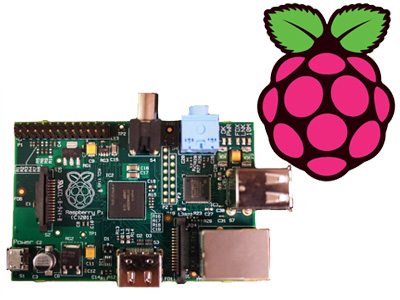Raspberry Pi announces new partners
The Raspberry Pi Foundation, creator of the Raspberry Pi ARM-based tiny computer that sells for $25, has announced that it has signed up Premier Farnell and RS Components as licensed manufacturers of the devices. The Foundation explained that the new model would remove the limitations of its previous supply model which meant it could only do batches of ten thousand Raspberry Pis a time, and that from now on, the device would be manufactured to meet demand. The Foundation will make a small profit from each Raspberry Pi sale which will be put back into the charity to help it achieve its educational mission.
The first indication of that demand came when the two companies also had the first batch of 10,000 Raspberry Pi Model B boards available for sale at 6am GMT this morning; their web sites were almost immediately swamped by buyers for the devices. Farnell sold out their allocation in less than an hour despite patchy web site availability and started taking pre-orders, while RS Components' web site now appears to only be taking registrations of interest for the Model B version of the device, priced at £21.60+VAT. It is reported that RS will start selling the board at the end of the week. The devices themselves are still in transit from their manufacturer in China.
The Foundation also announced that the Model A, the $25 version which is the more compact of the two versions but lacks the Ethernet port and USB ports of the Model B, has been upgraded to 256MB of RAM to match the Model B. Model Bs will be available first as this phase of the launch is aimed at software and hardware enthusiasts and others who want to create software for the device. The official educational launch is scheduled for later this year by which time the Foundation hopes that there will be an experienced community of Raspberry Pi users and more mature and bug free software for children and educators to use.
Although Raspberry Pi boards are designed with open source software in mind, with a remix of Fedora Linux being developed for it, the boards themselves are not open source hardware. The Foundation hopes to make the board open later on, with a release of the whole design, but is concentrating of building a sustainable educational foundation.

No comments:
Post a Comment